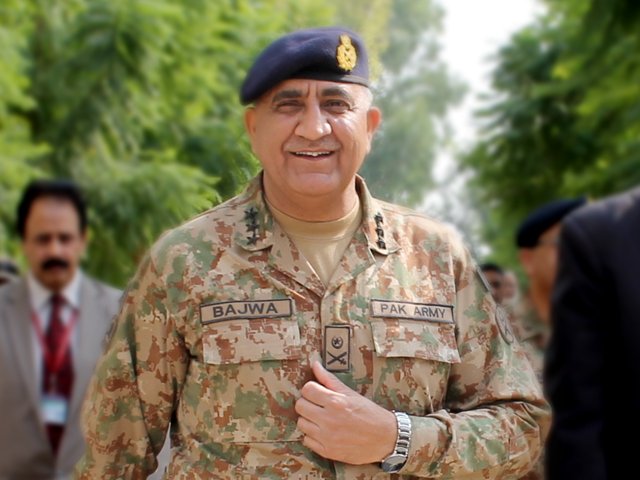
The federal cabinet on Tuesday approved a new summary for ‘extending’ the tenure of the army chief, hours after the Supreme Court suspended an earlier notification, raising legal questions regarding the reappointment of Gen Qamar Javed Bajwa.
It was an eventful day that started with proceedings of a petition challenging the extension of Gen Qamar’s tenure by a three-member bench, headed by Chief Justice Asif Saeed Khosa. The petitioner did not appear before the bench and instead sent a hand-written application requesting withdrawal of his petition.
But the chief justice, instead of accepting the request, converted the matter into sou motto notice by invoking Article 184(3). By the time the federal cabinet met for a scheduled meeting, with Prime Minister Imran Khan in the chair, the apex court had already suspended the notification after the attorney general failed to satisfy the judges.
After lengthy discussions behind closed doors, the cabinet took a break for an hour and reconvened in the evening to discuss the Supreme Court’s order and the available options to deal with the evolving situation.
Couple of hours later, senior cabinet members, Education Minister Shafqat Mahmood and Railways Minister Sheikh Rashid, along with Prime Minister’s Special Assistant Shahzad Akbar, appeared at a news conference to announce the cabinet decision.
Shafqat said the cabinet withdrew the earlier notification regarding the reappointment of Gen Qamar as the army chief in view of the Supreme Court observations and approved a new summary.
The new summary was approved after the cabinet amended Rule 255 of the Army Regulations by inserting a new word ‘extension in the service’. Shafqat insisted that the government did not violate any procedure in the earlier notification but decided to amend the relevant regulation in order to assist the court.
He said there was no confusion as far as the decision of the prime minister was concerned. “He [Prime Minister Imran Khan] wanted to extend the tenure of the army chief because of the extraordinary circumstances and he stood by that decision,” Shafqat explained.
The minister made it clear that under Article 243 of the Constitution, the prime minister has the prerogative to appoint the services chiefs and even extend their tenures.
Akbar clarified that the prime minister was empowered to appoint services chiefs under Article 243 of the Constitution. But as far as the extension in service was concerned that was done through Rule 255 of the Army Regulations.
He said the rule had now been amended to clear ambiguities, if any. Asked whether the amendment was meant to cover up the earlier procedural flaws in the notification, Shafqat argued that the cabinet has approved the changes only to assist the apex court.
Shaikh Rashid told reporters that all cabinet members as well as the government allies fully endorsed the decision of the prime minister to extend the tenure of the army chief, which, he said, was the need of the hour.
Shafqat also explained the circumstances under which the prime minister took this decision. As the Supreme Court questioned the vague term of ‘regional security environment,’ the senior PTI leader explained that it was the prime minister’s authority to assess that under what circumstances the tenure of the army chief could be extended.
He went on to list a number of events that happened recently and warranted the reappointment of Gen Qamar as the army chief. Those events, according to Shafqat, include the Balakot incident, when Indian fighter jets, for the first time since 1971, crossed the border.
He added that serious tension and shelling on the Line of Control (LoC), the curfew exceeding 100 days in Occupied Kashmir were also extraordinary situation. There was even a real threat of a false flag operation by India, Shafqat insisted, adding that all these developments contributed to the prime minister’s decision to seek continuity in the army command.

















COMMENTS
Comments are moderated and generally will be posted if they are on-topic and not abusive.
For more information, please see our Comments FAQ